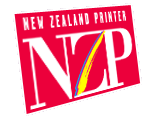
A small Whangarei-based packaging manufacturer Maniaia Mist Paper Solutions has won the New Zealand Packaging Council's Supreme Environmental Packaging Award for its Kiwifruit tray made from a blend of wood pulp and kiwi fruit pulp and skin.
The award was presented acting Minister for the Environment, David Parker, at the council's fifth Environmental Packaging Awards ceremony.
The judges agreed that Maniaia Mist founder and technical director, Basil Bromley's, export tray showed true Kiwi ingenuity in the design of packaging for New Zealand's national icon made from waste bi-products including the fruit itself.
Maniaia Mist may not be a well known company name but it also won the awards for Environmental Impact and Innovation in Design and received a highly commended in the Paper Packaging category.
The judges were glowing in their praise saying: "This team has put considerable thought, research, design and innovation into their entry and packaging product. This product is by no means an easy one to manufacture and its contribution to using by-products is significant."
Paul Curtis, executive director of the Packaging Council who runs the awards said that this year's awards have been the first real test under the Packaging Accord (2004) to demonstrate the major improvements made in the environmental design and resource recovery of packaging.
"All the winning entries share one trait, they will be successful. Not because they're eco-friendly or warm and fuzzy. They will be successful either because they are the most economical solution to a problem or because they will deliver better, cheaper and more profitable results.
"The choice of this year's Supreme Winner shows that the 95% of businesses which are small and medium sized are an important factor in the development of environmental packaging. However the Awards to Coca Cola Amatil, Hubbard Foods and Woolworths Limited Progressive Enterprises recognise the leadership role which major brand owners and retailers have in developing new markets for sustainable packaging."
Mr Curtis added that when the awards started all this was seen as "green stuff" but environmental design had now become part of business as usual in the packaged goods industry.
New markets for recycling plastic bags, using glass in roading aggregate and construction and better systems for processing recovered resources also received awards.
Winners included: Range Industries for turning low value plastic waste into pallets; Criterion Manufacturing for its new packaging for flat-pack furniture; and Palmerston North City Council being the first local body to win for its partnership with contractors to use recovered glass in its local roads and pathways.
Such was the standard of this year's Awards that 13 other entries were highly commended or commended.
Packaging Council president Mark Brosnan, said the entries epitomise the passion now seen across the packaged goods industry for finding sustainable solutions.
"We have a packaging recycling rate of 57 per cent which is up there with the rest of the world. Europe is doing only slightly better with an aggregated rate of 60 per cent but Australia and the UK have a very similar rates to our own at 56 per cent and 55 per cent respectively.
"We can show the rest of the world that a voluntary model works best. It's successful here because unlike voluntary agreements elsewhere, our accord is a partnership between all sectors of industry and local and central government. This is our major point of difference."
10 category winners were presented with awards on the night for excellence selected from 59 entries.






